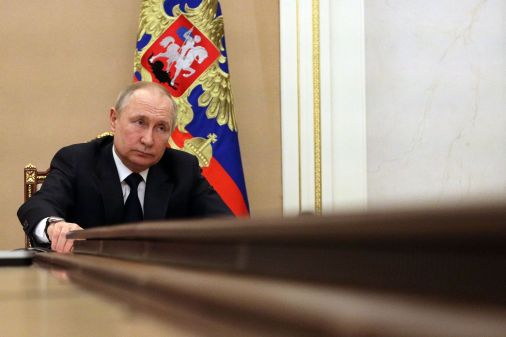U.S. moves to develop grand cybersecurity partnership with Ukraine, a favorite target for Russian hackers

During a week where multiple senior Ukrainian government officials came to visit Washington, a bill designed to foster further collaboration on cybersecurity efforts between the U.S. and Ukrainian governments passed the House of Representatives late Wednesday night.
Known as the “Ukraine Cybersecurity Cooperation Act of 2017,” the bipartisan legislation was first introduced by Rep. Brendan Boyle, D-Pa., in April 2017 just three months after news surfaced that a massive electric power blackout in Kiev had been caused by a complex cyberattack. Cybersecurity experts later attributed the attack to Russian hackers.
The bill, which was cosponsored by Rep. Brian Fitzpatrick, R-Pa., passed with a 404-4 vote.
In practice, the bill would encourage greater cooperation between the U.S. and Ukraine regarding several key digital defense priorities, including a promise that the U.S. will support the Ukrainian government when or if requested. The legislation proposes organizing the partnership through a Department of State initiative, including regular reporting back to Congress about the agreement’s ongoing effectiveness.
While the U.S. and Ukraine already work together on various diplomatic missions, the Ukraine Cybersecurity Cooperation Act deliberately requires for the U.S. to help provide Kiev with “advanced security protection on government computers, particularly systems that defend Ukraine’s critical infrastructure; provide Ukraine support to reduce reliance on Russian technology; and help Ukraine to build capacity, expand cyber security information sharing, and cooperate in international response efforts,” according to the bill.
Boyle, a member of the House Foreign affairs committee and outspoken advocate for more robust relations with Ukraine, said the bill represented a “strong step forward in the ongoing fight to counter Russia’s intensifying cyber-aggression.”
“Over the last few years, Russia has been using Ukraine as a field test for cyber attacks that endanger the national security of our great ally Ukraine, its regional neighbors, and the United States,” Boyle said. “H.R. 1997 sends a strong signal to Russia and all those who threaten the cybersecurity of America and its allies that we are ready and able to protect ourselves against this escalating threat … Time is of the essence, with American and Ukrainian elections each right around the corner.”
The legislation now heads to the Senate for a vote. At the moment, there is no companion bill in the upper chamber.
Boyle’ bill is important for a number of reasons, including the fact that Ukraine is not yet a member of the North Atlantic Treaty Organization (NATO). With membership comes a legal framework for how and when the U.S. could respond to attacks against Ukraine under Article 5 of the treaty. The Act provides another avenue for the U.S. government to voice their commitment without having NATO accept Ukraine’s application; a move which some in the Putin regime say could trigger a military conflict.






